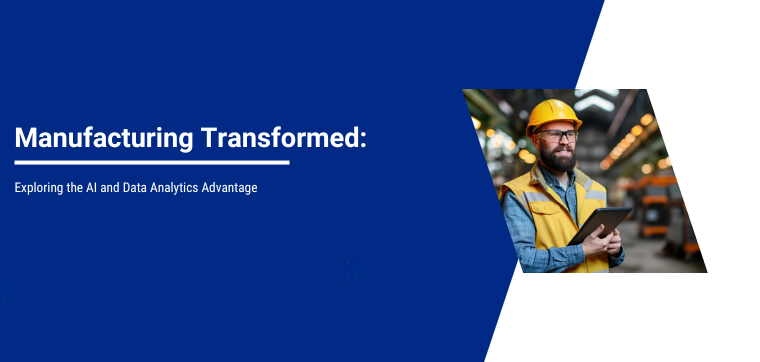Envision a world where machines and humans collaborate seamlessly in manufacturing environments. Picture a scenario where AI and data algorithms are analysing vast amounts of data to pre-emptively address potential breakdowns in manufacturing processes.
However, these scenarios are not merely futuristic fantasies. They represent the exciting, tangible realities that AI is currently bringing to the world of manufacturing.
Based on a report from ‘Label Your Data’, a remarkable 93% of businesses now view AI as a crucial driver for growth and innovation in the manufacturing sector. This widespread recognition stems from AI's proven capability in solving critical manufacturing issues, such as automating processes, forecasting market trends, refining quality inspections, and boosting product yields.
As a result, the fusion of AI in manufacturing is catalyzing a new era of innovation and efficiency, profoundly altering the industry and laying down fresh benchmarks for future progress.
Harnessing the Power of Big Data:
Modern manufacturing is data-rich, offering valuable insights from machine performance to customer preferences. Data analytics unlocks hidden insights, enhancing operational effectiveness, ensuring product quality, reducing interruptions, optimizing inventory, and informed decision-making. Here's how data analytics is transforming this sector:
-
Streamlining Operations: By dissecting production data, manufacturers are identifying inefficiencies and optimizing processes for better output and minimal waste.
-
Quality Assurance: Real-time data analysis enables proactive quality control, ensuring superior products.
-
Predictive Maintenance: Using data to predict equipment issues before they arise, thereby reducing unexpected downtime.
-
Inventory Optimization: Data-driven forecasting ensures optimal inventory levels, reducing costs associated with overstocking or shortages.
-
Strategic Decision-Making: Leveraging data for real-time insights aids in critical decision-making about production and resource management.
The Rise of AI: A Game Changer in Manufacturing
AI is swiftly reshaping the world of manufacturing, thanks to its capability to interpret data and execute smart decisions. Consequently, systems driven by AI are automating numerous tasks traditionally handled by human workers, thereby significantly boosting both efficiency and productivity in the manufacturing process. Let’s understand how AI is boosting the manufacturing sector:
-
Predictive maintenance: AI analyses sensor data to predict potential machine failures, allowing for preventive maintenance and minimizing downtime.
-
Quality control: AI-powered vision systems inspect products for defects with greater accuracy and speed.
-
Supply chain optimization: AI analyses data from various supply chain segments to identify inefficiencies and optimize logistics for efficient delivery.
-
Process automation: Repetitive tasks like data entry and machine operation can be automated by AI, freeing up human workers for more complex and valuable tasks.
-
Robotic process automation: AI-powered robots handle dangerous or repetitive tasks, improving worker safety and productivity.
-
Personalization and customization: AI can be used to personalize products and services to individual customer needs, enhancing customer satisfaction and loyalty.
-
Addressing Challenges, Embracing Opportunities
The integration of AI and data analytics in manufacturing is not without challenges:
-
Data infrastructure: Many manufacturers lack the necessary data infrastructure to collect, store, and analyse large amounts of data effectively.
-
Data security: Protecting sensitive data from cyberattacks is a major concern for manufacturers as data breaches can have significant financial and reputational consequences.
-
Skilled workforce: Manufacturers need to invest in training their workforce to understand and use data analytics and AI technologies effectively.
Overcoming these challenges is crucial to unlock the full potential of data analytics and AI in manufacturing. By embracing these technologies, manufacturers can:
-
Gain a significant competitive advantage in the global marketplace.
-
Increase efficiency and productivity.
-
Reduce costs and improve profitability.
-
Drive innovation and develop new products and services.
-
Enhance customer satisfaction and loyalty.
-
Conclusion
The integration of AI and data analytics is more than a trend; it's a fundamental shift in manufacturing, promising a future of efficiency, quality, and innovation. As the industry adapts, the possibilities are limitless.
